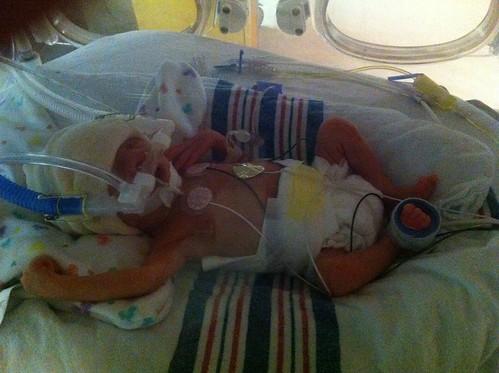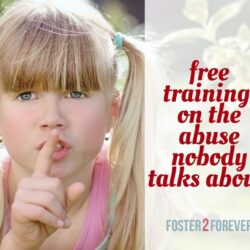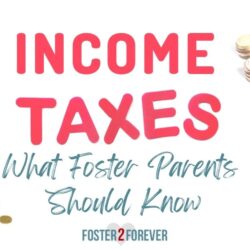We began fostering almost 4 years ago, and I often think about that first checklist we filled out, indicating what type of child we would care for that included race, age, and special needs. I am not sure if any of the children we have fostered have fit what I thought I could care for. I am so glad that God had a different plan for us.
My journey as a “special needs” foster parent began with our 4th foster placement. I had no idea what I was taking on. He was a “shaken baby” with the possibility of seizures. I’d had no training on special needs. While we had him, his health continued to deteriorate. He had a long hospital stay, a feeding tube was placed, and the hospital provided me with all the training I needed. I think about how God worked in that situation, teaching me every step of the way, as his special needs gradually got greater. It was also during this time that I learned that our other foster son (now our adopted son) had Fetal Alcohol Syndrome. That has brought on an entirely different type of parenting, but that is also a lifetime of special needs.
Our foster daughter that we have now also had special needs. I thank God everyday that I was able to learn how to care for her, so that I could confidently say “YES” when they called me to take her. She had already been in 2 placements, and they couldn’t find anyone else to take her that would take on a feeding tube. She is actually one of the easiest babies I have ever cared for, and we love her dearly.
I had no special training when we were opening our home, our license isn’t different, and most of my training has just come from experience. The state will adjust their board payment depending on the level of a child’s special needs and the amount of extra care they need (although not automatically, you do have to often ask). I now see that almost all foster children have “special needs” that you just learn as you go.
As far as medical special needs go, they can often times be easier to care for than behavior challenges. We do have a lot of doctor appointments, so it is nice that I do not have to work outside the home. I think it is still doable, and your caseworkers can help with this if you do work. My foster daughter’s biggest challenge is a feeding tube, and once I learned how to do it, it is just as easy as feeding her with a bottle, just different. Hospitals and doctors will gladly teach someone how to do it. The medical professionals we have worked with have been so helpful and so grateful to me for caring her her.
So often, my prayers include a prayer of “Thanks” to God for giving me the knowledge to know how to care for her, because she is such a precious little girl.
 Maury has been married for 12 years and has 6 children – biological, adopted, and foster. She and her husband have been fostering for years, but her journey began over 5 years when she started working with the Heart Gallery, photographing children waiting to be adopted. She shares her journey at Counting My Blessings.
Maury has been married for 12 years and has 6 children – biological, adopted, and foster. She and her husband have been fostering for years, but her journey began over 5 years when she started working with the Heart Gallery, photographing children waiting to be adopted. She shares her journey at Counting My Blessings.





